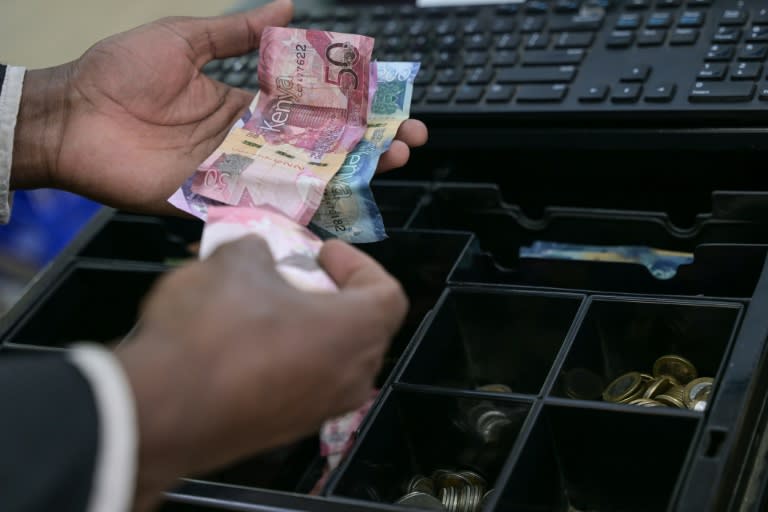Moody's cuts Kenya debt rating further into junk

Moody's has downgraded Kenya's debt rating further into junk territory and warned the outlook was negative after a wave of protests led the government to abandon proposed tax hikes.
President William Ruto, facing the most serious crisis of his near two-year presidency, last month scrapped a finance bill aimed at replenishing government coffers and helping reduce its huge debt burden.
The move came after widespread demonstrations led by young Gen-Z Kenyans against the tax increases that threatened to add to the economic hardship of people already gripped by a cost of living crisis.
The US-based ratings agency said in a statement on Monday it was cutting the ratings for Kenyan government debt by one level to Caa1 -- considered to have "very high credit risk".
The new rating, and Moody's negative outlook for the country, is likely to further increase borrowing costs for the cash-strapped government.
Moody's said the downgrade reflected Kenya's "significantly diminished capacity" to raise taxes and reduce debt.
"In particular, the government's decision not to pursue planned tax increases and instead rely on expenditure cuts to reduce the fiscal deficit represents a significant policy shift with material implications for Kenya's fiscal trajectory and financing needs," it said.
"In the context of heightened social tensions, we do not expect the government to be able to introduce significant revenue-raising measures in the foreseeable future."
Ruto announced on June 26 that he was withdrawing the finance bill that was aimed at raising a further $2.7 billion after the largely peaceful protests over the tax hikes degenerated into deadly violence.
At least 39 people have been killed since the rallies began on June 18, according to the national rights commission, as the anger over the tax increases escalated into an ongoing campaign against Ruto and his government.
Last Friday, Ruto said the government had to compensate for the lack of the extra tax revenue, announcing budget cuts of 177 billion shillings ($1.4 billion) and additional borrowing of around 169 billion shillings.
Kenya's public debt already amounts to some 10 trillion shillings, around 70 percent of gross domestic product.
Despite the unrest, the Kenyan shilling has remained largely stable, hovering at around 128 to the dollar after plunging to a record low of more than 160 in January.
The Kenya Revenue Authority announced on Monday that it had collected 2.4 trillion shillings in the financial year ended June 30, a rise of more than 11 percent, but 4.5 percent below target.
txw/rl

 Yahoo Finance
Yahoo Finance 